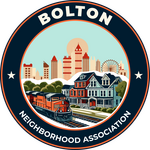The history of Bolton, a neighborhood in Atlanta’s Upper Westside, is deeply rooted in its early days as a separate settlement. Originally known as Fulton, Boltonville, and Iceville, the area was named after Charles Bolton, a state Railroad Commissioner appointed in 1837. Bolton’s establishment as a key stop on the railroad significantly influenced its development and character.
Incorporated in 1893, Bolton maintained its independence and distinct identity for several decades. It was notable for having its own Freemason lodge, which was a common feature of many independent towns and communities during that era. The Freemason lodge likely served as a social and community center, reflecting the close-knit nature of the settlement.
The major transformation for Bolton came in 1952 when it, along with much of what is now called Buckhead, was annexed to Atlanta. This annexation was a part of Atlanta’s broader efforts to expand its boundaries and integrate surrounding areas. The incorporation of Bolton into Atlanta marked a significant change in the area’s governance and its integration into the larger urban fabric of the city.
Today, Bolton retains a sense of its historic roots while also evolving to meet the needs of a modern urban neighborhood. Its past as an independent settlement with various names, including Boltonville and Iceville, adds to the rich tapestry of Atlanta’s diverse neighborhoods. The historical significance of Bolton, like many other Atlanta neighborhoods, contributes to the city’s unique character and history

